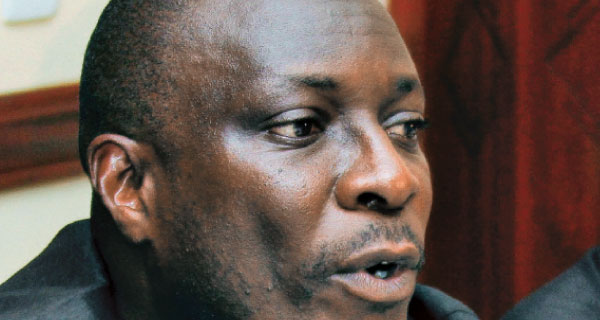 |
|
David Ohito Standard Editor |
David Ohito
[email protected]
The warning signs were very clear that some people were keen on whittling down media freedom and reversing gains made on free press and Kenya’s democracy at large. The absurd impact of these draconian and retrogressive laws to gag media will be felt by majority of Kenyans but more importantly those who have relied on community or vernacular radio stations as their sole source of information.
In short, Kenya is preparing the media environment to be the place exclusively for large media houses with financial muscle and infrastructure.
Such important media channels that address community interests as opposed to national interests will suffer a big blow.
Out of more than 100 radio channels, hardly five can survive a penalty of Sh20 million in a year.
It means the robust media climate enjoyed and thousands of jobs in the media industry are staring fresh risks comparable to what was witnessed under the single party era dictatorship.
The Kenya Information and Communication (Amendment) Bill passed by the National Assembly Thursday, with just one stakeholder meeting convened, went ahead and rubbished all the good work done in the Media Council of Kenya Bill with proper complaints resolution mechanisms in place.
The Media Council of Kenya is now but a toothless dog with its work duplicated in the Multimedia Tribunal. Despite many assurances echoed by President Uhuru Kenyatta and Deputy President William Ruto that the Jubilee administration would ensure fairplay and implement laws spelled out under Article 34 of the Constitution, the National Assembly went ahead to endorse questionable laws.
Recently, Uhuru challenged the media to be responsible in their reportage and accused sections of the press of glorifying terrorism during the Westgate tragedy, saying coverage fell below ethical standards.
Article 34 of the Constitution on Freedom of the Media provides that Parliament shall enact legislation that provides for the body.
Article 34(5) of the Constitution of Kenya 2010 provides that ‘… Parliament shall enact legislation that provides for the establishment of a body which shall: Be independent of control by government, political interests or commercial interests; Reflect the interests of all sections of society; and Set media standards and regulate and monitor compliance with those standards.’
But when the time to pass the laws came, very punitive measures were introduced and which were not vetted and endorsed by the Commission for Implementation of the Constitution.
Worse still, under the noses of vested interests at the Ministry of Information, Communication and Technology, retrogressive and draconian clauses were sneaked in contrary to stakeholder inputs.
The big issue emerging is that it will kill the small players who had catered for the interests of may local people largely excluded by mainstream media.
Analysts see the hefty fines imposed under a tribunal which will be addressing media complaints as very punitive and impractical.
The tribunal will wield powers and impose hefty fines against individual journalists perceived to be critical of government and powerful individuals. They may be ordered to pay up to Sh1 million as fines as the media house pays Sh20 million.
Worse still in the clauses will be the powers to recommend the suspension and or deregister journalists a function that is only performed by the professional associations.
The draconian pieces of legislation are contained in the decision the tribunal will able to make. And says in part under article 102E of KICA Bill 2013 that the journalists and media houses risk hefty fines should they violate Media Act, the Kenya information and Communication Act or the code of conduct.
With such heavy penalties a considerable section of the population which has relied on vernacular and community radio stations or newspapers and magazines with small circulation will simply be shut out of business.
The media has been fearing offenses of defamation, publishing false information and being in possession of information illegally but now a fourth scare of hefty fines adds to the number of nooses dangling dangerously over the head of the journalists.
Observers are also querying the poor drafting in which the Multi-Media tribunal is set to be having seven members but only four and the chair are clearly defined leaving two faceless individuals to determine the cases against media houses and journalists.
 The Standard Group Plc is a multi-media organization with investments in media
platforms spanning newspaper print operations, television, radio broadcasting,
digital and online services. The Standard Group is recognized as a leading
multi-media house in Kenya with a key influence in matters of national and
international interest.
The Standard Group Plc is a multi-media organization with investments in media
platforms spanning newspaper print operations, television, radio broadcasting,
digital and online services. The Standard Group is recognized as a leading
multi-media house in Kenya with a key influence in matters of national and
international interest.
 The Standard Group Plc is a multi-media organization with investments in media
platforms spanning newspaper print operations, television, radio broadcasting,
digital and online services. The Standard Group is recognized as a leading
multi-media house in Kenya with a key influence in matters of national and
international interest.
The Standard Group Plc is a multi-media organization with investments in media
platforms spanning newspaper print operations, television, radio broadcasting,
digital and online services. The Standard Group is recognized as a leading
multi-media house in Kenya with a key influence in matters of national and
international interest.










